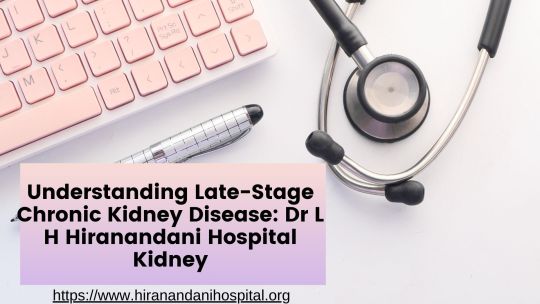#Managing Diabetes Effectively
Text
How to manage diabetes
Mastering Diabetes: Your Comprehensive Guide to Managing and Thriving
Picture this: you’re sitting at your favorite café, savoring the aroma of freshly brewed coffee and the warmth of the sun on your face. You’re not just enjoying your morning, you’re taking control of your life. Living with diabetes doesn’t mean giving up on life’s pleasures; it’s about understanding your body, making informed…

View On WordPress
#Blood Sugar Management#Diabetes Control#Diabetes Education#Diabetes Lifestyle#Diabetes Management#Diabetes Strategies#Diabetes Support#Diabetes Wellness#Living with Diabetes#Managing Diabetes Effectively#Thriving with Diabetes
0 notes
Text
actually diabetes is never "badly managed" or "poorly controlled" because blood sugar readings don't hold moral worth.
#instead 'effects of badly managed diabetes'#just say 'effects of long periods of hyperglycaemia' (or hypoglycaemia but usually people are talking about effects of high blood sugar not#low blood sugar. or if you're talking about a combination of highs and lows say 'effects of unstable blood sugar'#too much moral judgment is placed of diabetics ability to function as alpha/beta cells#(usually people attribute diabetes stuff to the pancreas but it's actually beta cells that produce insulin. the pancreas produces the beta#cells which produce the insulin. in type one diabetes the immune system attacks the beta cells (and the alpha cells#they do glucogon stuff if i remember correctly)#(that was a tangent. yes diabetes is related to the pancreas but also. more complicated than 'my pancreas is Dead'#the pancreas actually has more roles than just insulin/blood sugar stuff.)#anyways. feel free to reblog#🫧#☁️#diabetes#type one diabetes#t1d#this also applies to type two. just i don't have that so i feel weird tagging it djfjkfk#cripple punk#cpunk#disability#ableism tw
78 notes
·
View notes
Text
New Fitness Workout Workout Routine Videos
#health & fitness#home & lifestyle#beauty#repcomm#food#workout#fitness#exercise#workoutmotivation#fitnessjourney#nutrition#Exercise is essential for your overall health. Good health and weight loss are interrelated. If a person has a higher body mass index#then they are prone to several disorders like hypertension#diabetes#cholesterol#and other cardiovascular problems. Exercise becomes also very crucial for the effective management of these conditions. If you are diagnose#you can try out these exercises for diabetes to keep your blood sugar levels in check.
4 notes
·
View notes
Text
I am now on the 5mg dose of mounjaro and the burps, severe gas, and bloating might do me in.
Imma wait it out in hopes that it gets better, but the discomfort is getting a little extreme.
We shall see how this week goes. On the upside, my blood sugar is down. I really want this to work because I do not want to go back to sticking myself 4 times a day.
1 note
·
View note
Text

Early detection of CKD, preferably in its earlier stages, is paramount for effective management and improved outcomes. Routine screenings for high-risk individuals, including those with diabetes and hypertension, can aid in identifying kidney dysfunction before it progresses to late stages. Education and awareness campaigns about CKD risk factors and symptoms are crucial for encouraging early medical intervention as Per Hiranandani Hospital Kidney.
#hiranandani hospital reviews#hiranandani powai hospital#hiranandani hospital kidney#hiranandani hospital powai#hiranandani hospital kidney care#hiranandani hospital powai news#hiranandani hospital powai covid#hiranandani hospital kidney transplant#hiranandani hospital kidney tranplant#hiranandani hospital#Early detection of CKD#preferably in its earlier stages#is paramount for effective management and improved outcomes. Routine screenings for high-risk individuals#including those with diabetes and hypertension
0 notes
Text

#Ayurveda Tips#Healthy Living#Diabetes Management#Diabetes Signs#Blood Sugar Control#Diabetes signs and symptoms#Ayurvedic remedies for diabetes#Managing blood sugar naturally#Diabetes effects on the body#Healthy lifestyle with diabetes
0 notes
Text
"Discovering the Hidden Facts About GlucoTrust: What They Keep Secret" #GlucoTrust
Are you curious about GlucoTrust and what it can do for your health? You're not alone. In this article, we'll delve into the lesser-known aspects of GlucoTrust that aren't often discussed. Buckle up as we uncover the truth behind this supplement, while keeping it under 1,000 words.

Read more >>
#GlucoTrust#glucoTrust-supplement-reviews#Blood sugar support supplements#Natural blood sugar control#GlucoTrust ingredients list#Managing diabetes naturally#GlucoTrust customer testimonials#GlucoTrust vs. competitors#Lowering blood sugar naturally#GlucoTrust benefits and side effects#Controlling blood sugar levels#GlucoTrust dosage recommendations#Herbal blood sugar supplements#GlucoTrust for type 2 diabetes#Best supplements for blood sugar#GlucoTrust and weight loss#BloodSugar#Diabetes#HealthyLiving#WellnessTips
0 notes
Text
What are the 10 side effects of metformin?
Delve into the comprehensive guide about the 10 potential side effects of metformin, a commonly prescribed medication for managing type 2 diabetes. Learn about the nuances, management strategies, and precautions associated with these effects.
Introduction: Your Companion in Diabetes Management
Metformin: a steadfast ally in the realm of type 2 diabetes treatment. Understanding its potential…

View On WordPress
#assisted reproduction#conception aid#diabetes medication#Dosage#fertility enhancement#Holistic Approach#hormonal balance#Insulin Resistance#Insulin Sensitivity#Lifestyle Changes#male fertility#medical guidance#menstrual cycle regulation#metformin#Monitoring#ovulation stimulation#PCOS management#recurrent miscarriages#reproductive health#Side Effects#success stories
0 notes
Note
they have a point though. you wouldn't need everyone to accommodate you if you just lost weight, but you're too lazy to stick to a healthy diet and exercise. it's that simple. I'd like to see you back up your claims, but you have no proof. you have got to stop lying to yourselves and face the facts
Must I go through this again? Fine. FINE. You guys are working my nerves today. You want to talk about facing the facts? Let's face the fucking facts.
In 2022, the US market cap of the weight loss industry was $75 billion [1, 3]. In 2021, the global market cap of the weight loss industry was estimated at $224.27 billion [2].
In 2020, the market shrunk by about 25%, but rebounded and then some since then [1, 3] By 2030, the global weight loss industry is expected to be valued at $405.4 billion [2]. If diets really worked, this industry would fall overnight.
1. LaRosa, J. March 10, 2022. "U.S. Weight Loss Market Shrinks by 25% in 2020 with Pandemic, but Rebounds in 2021." Market Research Blog.
2. Staff. February 09, 2023. "[Latest] Global Weight Loss and Weight Management Market Size/Share Worth." Facts and Factors Research.
3. LaRosa, J. March 27, 2023. "U.S. Weight Loss Market Partially Recovers from the Pandemic." Market Research Blog.
Over 50 years of research conclusively demonstrates that virtually everyone who intentionally loses weight by manipulating their eating and exercise habits will regain the weight they lost within 3-5 years. And 75% will actually regain more weight than they lost [4].
4. Mann, T., Tomiyama, A.J., Westling, E., Lew, A.M., Samuels, B., Chatman, J. (2007). "Medicare’s Search For Effective Obesity Treatments: Diets Are Not The Answer." The American Psychologist, 62, 220-233. U.S. National Library of Medicine, Apr. 2007.
The annual odds of a fat person attaining a so-called “normal” weight and maintaining that for 5 years is approximately 1 in 1000 [5].
5. Fildes, A., Charlton, J., Rudisill, C., Littlejohns, P., Prevost, A.T., & Gulliford, M.C. (2015). “Probability of an Obese Person Attaining Normal Body Weight: Cohort Study Using Electronic Health Records.” American Journal of Public Health, July 16, 2015: e1–e6.
Doctors became so desperate that they resorted to amputating parts of the digestive tract (bariatric surgery) in the hopes that it might finally result in long-term weight-loss. Except that doesn’t work either. [6] And it turns out it causes death [7], addiction [8], malnutrition [9], and suicide [7].
6. Magro, Daniéla Oliviera, et al. “Long-Term Weight Regain after Gastric Bypass: A 5-Year Prospective Study - Obesity Surgery.” SpringerLink, 8 Apr. 2008.
7. Omalu, Bennet I, et al. “Death Rates and Causes of Death After Bariatric Surgery for Pennsylvania Residents, 1995 to 2004.” Jama Network, 1 Oct. 2007.
8. King, Wendy C., et al. “Prevalence of Alcohol Use Disorders Before and After Bariatric Surgery.” Jama Network, 20 June 2012.
9. Gletsu-Miller, Nana, and Breanne N. Wright. “Mineral Malnutrition Following Bariatric Surgery.” Advances In Nutrition: An International Review Journal, Sept. 2013.
Evidence suggests that repeatedly losing and gaining weight is linked to cardiovascular disease, stroke, diabetes and altered immune function [10].
10. Tomiyama, A Janet, et al. “Long‐term Effects of Dieting: Is Weight Loss Related to Health?” Social and Personality Psychology Compass, 6 July 2017.
Prescribed weight loss is the leading predictor of eating disorders [11].
11. Patton, GC, et al. “Onset of Adolescent Eating Disorders: Population Based Cohort Study over 3 Years.” BMJ (Clinical Research Ed.), 20 Mar. 1999.
The idea that “obesity” is unhealthy and can cause or exacerbate illnesses is a biased misrepresentation of the scientific literature that is informed more by bigotry than credible science [12].
12. Medvedyuk, Stella, et al. “Ideology, Obesity and the Social Determinants of Health: A Critical Analysis of the Obesity and Health Relationship” Taylor & Francis Online, 7 June 2017.
“Obesity” has no proven causative role in the onset of any chronic condition [13, 14] and its appearance may be a protective response to the onset of numerous chronic conditions generated from currently unknown causes [15, 16, 17, 18].
13. Kahn, BB, and JS Flier. “Obesity and Insulin Resistance.” The Journal of Clinical Investigation, Aug. 2000.
14. Cofield, Stacey S, et al. “Use of Causal Language in Observational Studies of Obesity and Nutrition.” Obesity Facts, 3 Dec. 2010.
15. Lavie, Carl J, et al. “Obesity and Cardiovascular Disease: Risk Factor, Paradox, and Impact of Weight Loss.” Journal of the American College of Cardiology, 26 May 2009.
16. Uretsky, Seth, et al. “Obesity Paradox in Patients with Hypertension and Coronary Artery Disease.” The American Journal of Medicine, Oct. 2007.
17. Mullen, John T, et al. “The Obesity Paradox: Body Mass Index and Outcomes in Patients Undergoing Nonbariatric General Surgery.” Annals of Surgery, July 2005. 18. Tseng, Chin-Hsiao. “Obesity Paradox: Differential Effects on Cancer and Noncancer Mortality in Patients with Type 2 Diabetes Mellitus.” Atherosclerosis, Jan. 2013.
Fatness was associated with only 1/3 the associated deaths that previous research estimated and being “overweight” conferred no increased risk at all, and may even be a protective factor against all-causes mortality relative to lower weight categories [19].
19. Flegal, Katherine M. “The Obesity Wars and the Education of a Researcher: A Personal Account.” Progress in Cardiovascular Diseases, 15 June 2021.
Studies have observed that about 30% of so-called “normal weight” people are “unhealthy” whereas about 50% of so-called “overweight” people are “healthy”. Thus, using the BMI as an indicator of health results in the misclassification of some 75 million people in the United States alone [20].
20. Rey-López, JP, et al. “The Prevalence of Metabolically Healthy Obesity: A Systematic Review and Critical Evaluation of the Definitions Used.” Obesity Reviews : An Official Journal of the International Association for the Study of Obesity, 15 Oct. 2014.
While epidemiologists use BMI to calculate national obesity rates (nearly 35% for adults and 18% for kids), the distinctions can be arbitrary. In 1998, the National Institutes of Health lowered the overweight threshold from 27.8 to 25—branding roughly 29 million Americans as fat overnight—to match international guidelines. But critics noted that those guidelines were drafted in part by the International Obesity Task Force, whose two principal funders were companies making weight loss drugs [21].
21. Butler, Kiera. “Why BMI Is a Big Fat Scam.” Mother Jones, 25 Aug. 2014.
Body size is largely determined by genetics [22].
22. Wardle, J. Carnell, C. Haworth, R. Plomin. “Evidence for a strong genetic influence on childhood adiposity despite the force of the obesogenic environment” American Journal of Clinical Nutrition Vol. 87, No. 2, Pages 398-404, February 2008.
Healthy lifestyle habits are associated with a significant decrease in mortality regardless of baseline body mass index [23].
23. Matheson, Eric M, et al. “Healthy Lifestyle Habits and Mortality in Overweight and Obese Individuals.” Journal of the American Board of Family Medicine : JABFM, U.S. National Library of Medicine, 25 Feb. 2012.
Weight stigma itself is deadly. Research shows that weight-based discrimination increases risk of death by 60% [24].
24. Sutin, Angela R., et al. “Weight Discrimination and Risk of Mortality .” Association for Psychological Science, 25 Sept. 2015.
Fat stigma in the medical establishment [25] and society at large arguably [26] kills more fat people than fat does [27, 28, 29].
25. Puhl, Rebecca, and Kelly D. Bronwell. “Bias, Discrimination, and Obesity.” Obesity Research, 6 Sept. 2012.
26. Engber, Daniel. “Glutton Intolerance: What If a War on Obesity Only Makes the Problem Worse?” Slate, 5 Oct. 2009.
27. Teachman, B. A., Gapinski, K. D., Brownell, K. D., Rawlins, M., & Jeyaram, S. (2003). Demonstrations of implicit anti-fat bias: The impact of providing causal information and evoking empathy. Health Psychology, 22(1), 68–78.
28. Chastain, Ragen. “So My Doctor Tried to Kill Me.” Dances With Fat, 15 Dec. 2009. 29. Sutin, Angelina R, Yannick Stephan, and Antonio Terraciano. “Weight Discrimination and Risk of Mortality.” Psychological Science, 26 Nov. 2015.
There's my "proof." Where is yours?
#inbox#fat liberation#fat acceptance#fat activism#anti fatness#anti fat bias#anti diet#resources#facts#weight science#save
8K notes
·
View notes
Text
Astrocartography notes

🌍 Do you want to study abroad? Work abroad? Your MC lines show what domain to pursue:
Sun MC: photographer, actor; check the planet ruling your Sun's zodiac sign for more details
Moon MC: nurse, preschool/elementary teacher, childcare worker/nanny, doula, housekeeper
Mercury MC: librarian, language teacher, speech language pathologist, translator, working in academia, journalist, PR agent, receptionist, secretary, architect, economist, comedian
Venus MC: modelling, artist, fashion designer, hairstylist, makeup artist, art director, interior designer, garden designer, florist, wedding planner
Mars MC: surgeon, firefighter, working at the police, sportsman (the type of sport depends on the zodiac sign Mars is in your birth chart, for ex. Mars in Pisces = football, swimming; Mars in Libra = gymnastics); fitness instructor
Jupiter MC: international driver (driving to your Jupiter MC line brings bonusess💰💰), flight attendant, hotel manager, tour guide, philosopher
Saturn MC: general practitioner, dentist, law, working in the Parliament, working in public institutions, business (CEO), historian, construction worker
Uranus MC: STEM (engineering, ecology sciences, biology), electrician, weather presenter, astronomer/astrophysicist, astrologer, sociology, social worker, advocate for human rights/activist
Neptune MC: choreographer, scenographer, film/theater director, actor, ballet dancer, music composer, rehabilitation worker, bartender, yoga instructor, meditation teacher, reiki practitioner
Pluto MC: adult actor, therapist, psychiatrist, any job regarding forensics (detective, toxicologist, forensic accountant etc.), embalmer, funeral director, loan officer, research analyst
🌍 If you have no astrocartography lines passing through the country you lived for most of your life, you probably don't feel at home in that country and have always wanted to relocate to another country
🌍 When you have atleast 2 lines "conjuncting" each other through a certain country, the planet that is more dominant in your birth chart will have a higher effect in astrocartography
🌍 Mercury IC line can show where one of your siblings or cousins relocate at some point during their life
🌍 If you're a girl and you have daddy issues (hey, we don't judge here!!), travelling to Saturn DSC line will likely bring you lots of opportunities of meeting your perfect partner, but also harsh lessons regarding control in a relationship (this is a good line for you to heal your daddy issues)
🌍 If you want to meet your future spouse and you (personally) find international guys attractive, travelling to Jupiter DSC line is a very good idea. Your future spouse might also be a foreigner in that country, just like you :)
🌍 Sun ASC line shows you where you can find your life's purpose. Also your depression:📉📉 0%, while your happiness:📈📈 100% (unless your Sun is in your 8th or 12th house, then the mental health effect is the complete opposite)
🌍 You could give birth on your Moon IC line😳 or your mom could have given birth to you on that line
🌍 Venus ASC line shows you where you could take lots of pictures (of yourself, of the sightseeings). Also, where you could get diabetes where you will want to try every type of sweets you find there
🌍 You will either get very drunk, consume drugs or smoke some weird shit on your Neptune ASC line (pls take care of your health)
🌍 You could randomly meet an ex or someone who resembles your ex while travelling to your Chiron DSC line
#astro#astro community#astrology#astro placements#astro observations#astro posts#astroblr#astro blog#astro notes#astrocartography#zodiac
1K notes
·
View notes
Text
GUT HEALTH: How it Affects Your body 🍽️🤍✨
Having a healthy gut is important because it plays a central role in the overall functioning of your body. The state of a healthy or unhealthy gut affects all of these things:
Digestion and Nutrient Absorption: The gut's main role is to break down food and absorb important nutrients, including vitamins and minerals. When the gut is healthy, it digests food effectively and maximizes nutrient absorption. When it is not, it can result in digestive issues such as bloating, gas, and diarrhea, as well as nutrient deficiencies.
Immune System Support: About 70% of our immune cells are located in the gut. A balanced gut supports a strong immune response, helping the body fend off illnesses and reduce the risk of infections.
Emotions and Mood: The gut and brain are intricately connected through the gut-brain axis. The gut produces many neurotransmitters, including serotonin, which regulates your mood. An imbalanced gut can influence mental health, leading to issues like anxiety, depression, and even cognitive impairments.
Hormonal Balance: The gut plays a role in the production and modulation of certain hormones. This can impact various bodily functions, from stress responses to reproductive health.
Weight Management: The gut microbiome can influence metabolism, appetite, and fat storage. An imbalanced gut can lead to weight gain and metabolic disorders.
Protection Against Chronic Diseases: Poor gut health has been linked to a higher risk of chronic diseases, including type 2 diabetes, cardiovascular disease, and certain types of cancer.
Detoxification: The gut plays a role in eliminating waste products and toxins from the body.
Inflammation Regulation: A healthy gut can help regulate inflammation in the body. Chronic inflammation, often resulting from an imbalanced gut is a root cause of many diseases.
Skin Health: There's a connection between gut health and skin conditions. Issues like acne, eczema, and rosacea can be influenced by the state of the gut. An unhealthy gut can lead to inflammation, which may manifest as skin issues.
Barrier Function: The gut lining acts as a barrier, preventing harmful substances from entering the bloodstream. A compromised gut lining, often referred to as "leaky gut," can allow toxins and pathogens to enter the bloodstream leading to various health issues.
Production of Vital Compounds: Your gut produces essential compounds, like short-chain fatty acids, which has a lot of positive effects on health from reducing inflammation to supporting brain function.
Sleep Function: The gut produces neurotransmitters and hormones that regulate sleep, such as serotonin and melatonin. An unhealthy gut can disrupt sleep patterns.
#gut health#health and wellness#healthy living#mental health#healthy diet#health#wellness#healthy lifestyle#health tips#health is wealth#food#nutrition#level up journey#self help#self care#personal improvement#personal development#personal growth#skincaretips#skincare
713 notes
·
View notes
Text
OZEMPİCİNFO - SİLVER

Ozempicinfo.net: Your Ultimate Guide to Ozempic Information
Welcome to Ozempicinfo.net, your go-to source for comprehensive information about Ozempic. Whether you're exploring treatment options, seeking in-depth insights, or staying updated on the latest developments, Ozempicinfo.net is here to guide you through your journey.
What Sets Ozempicinfo.net Apart?
Complete Information Hub: Ozempicinfo.net serves as a comprehensive information hub, covering all aspects of Ozempic, from its uses to potential side effects.
Treatment Guidance: Discover detailed guidance on Ozempic as a treatment option, understanding its mechanism of action and how it can benefit those with diabetes.
Latest Updates: Stay informed about the latest updates and breakthroughs related to Ozempic. Our platform is regularly updated to provide you with the most current information.
User-Friendly Interface: Ozempicinfo.net is designed with you in mind. Navigate effortlessly through our user-friendly interface to find the information you need quickly.
Key Topics Covered:
Ozempic Overview: Learn about Ozempic, its purpose, and how it fits into diabetes management.
Treatment Guidelines: Understand the recommended usage, dosage, and administration of Ozempic for optimal results.
Benefits and Risks: Explore the potential benefits of Ozempic alongside considerations about possible risks or side effects.
User Experiences: Read about the experiences of individuals who have incorporated Ozempic into their diabetes management routine.
Why Choose Ozempicinfo.net?
Reliable Information: Trustworthy and evidence-based information to aid your understanding of Ozempic.
Educational Resources: Access educational resources to empower yourself with knowledge about Ozempic.
Community Support: Connect with others on a similar journey, sharing experiences and insights in our supportive community.
Empower Yourself with Ozempic Knowledge!
Visit Ozempicinfo.net now to empower yourself with the information you need to make informed decisions about Ozempic. Your journey to understanding and managing diabetes starts here!
297 notes
·
View notes
Note
On the weight loss thing - how much does A1C matter, and what are you supposed to do about it, if not 'aggressive weight loss'? I've dug through some studies but ... there's so much fatphobia, and honestly, it's poking my own eating disordered history in the nose. My partner's terrified of becoming diabetic and I don't know how to support them on that.
A1c matters, but the thing is, the medical community dropped standards so “pre-diabetes” is now defined as an A1c of 5.7 or up in most settings I’ve worked in. (Hemoglobin A1c is a way to measure an estimated 3-month rolling average blood sugar based on glycosylation, which Autocorrect turned to “glucose Latinos,” which, no.) Diabetes is defined as an A1c at or above 6.5.
But like… the goal we’re told to set for diabetics is under 7.0.
So does tissue damage from high sugars start happening at 5.7? No. And I would argue that if we don’t say that medication is required until 7.0, then the DISEASE starts at 7.0.
There’s been attempts to medicate people with “prediabetes” to prevent the development of diabetes. It’s not effective. Lots of people in the “prediabetic” category never go on to develop diabetes. I just think it’s a bit of a garbage categorization scheme.
And you’re never gonna believe what I’m going to tell you about preventing diabetes… it’s eating right and exercise. Doesn’t matter whether you lose weight. Eating right and exercising will help even if you don’t lose a pound. Even if you gain weight. Stay active and eat lots of fresh fruits and vegetables and whole grains, and your odds of developing complications from diabetes are quite low. Plus, if you DO get diabetes, we have highly effective medication options. Yes, insulin is still a mainstay, but the last 30 years have seen incredible advances in diabetes care.
Diabetes is neither a moral judgment nor a death sentence. Genetics has a whole lot to do with it, and it is highly manageable. Proper care of your body will help it live its longest and best life.
Eat well, move around, do things you love. Sleep right—that’s a huge component of blood sugar. Minimize stress. You do not have to hate your body to keep it in line. It’s part of your team.
311 notes
·
View notes
Text
It's Gastroparesis Awareness Month
Hi! I have gastroparesis and I'm an insufferable know-it-all so let's talk about it!
Gastroparesis, or a paralyzed stomach, is a condition that causes delayed gastric emptying.
This can cause a range of symptoms and complications:
nausea
vomiting
early satiety/fullness
upper gastric pain
heartburn
malabsorption
dehydration
malnutrition
Gastroparesis can be treated by a gastroenterologist, but often needs to be managed by a motility specialist due to a lot of misconceptions about the condition. Providers, especially in the emergency department, will commonly misdiagnose gastroparesis as cannabis-hyperemesis syndome, cyclic vomiting syndrome, gastritis, food poisoning, etc.
There are several commonly known causes of gastroparesis like vagus nerve damage from diabetes, injury to the stomach, and stomach surgery like hernia repair or bariatric surgery. There are also idiopathic cases with no known cause. Other causes of gastroparesis are:
Connective tissue disorders like HSD and EDS (commonly hEDS and cEDS)
Post-viral (like COVID, viral gastritis, mononucleosis/Epstein-Barr)
Restrictive eating disorders
Autoimmune diseases like Systemic sclerosis (scleroderma), Lupus, Hashimoto's
Central nervous system disorders
Gastroparesis also has common comorbidities with conditions like:
POTS and other forms of dysautonomia (POTS, EDS, and gastroparesis are a common triad of diagnoses)
MCAS
SMAS (which can also present with similar symptoms to GP)
Intestinal dysmotility and esophageal dysmotility disorders (known as global dysmotility)
PCOS with insulin resistance
Endometriosis
SIBO/SIFO
Chronic intestinal pseudo-obstruction
Migraines
Certain medications like Ozempic and other drugs in that class act on the digestive system to delay gastric emptying, which has caused people to be diagnosed with gastroparesis. Some people report that their cases have not gone away since stopping the medication, others report feeling better after stopping. Other drugs like opiates and narcotics can cause delayed gastric and intestinal motility as well, but these are commonly known side effects of those painkiller classes.
Gastroparesis is classed based on severity and graded based on how you respond to treatment.
Severity of delay ranges from mild to very severe, and this is based on your actual stomach retention calculated at 4 hours into a gastric emptying study.
The grading scale ranges from one to three, one being mild and three being gastric failure.
There is no consistent single treatment that is proven to work for gastroparesis, and there is no cure. Treatments can consist of:
Diet changes (3 Step Gastroparesis Diet, liquid diet, oral sole source nutrition)
Prokinetic (motility stimulating) drugs
Anti-nausea medications
Proton-pump inhibitors
Gastric stimulator/gastric pacemaker
Pyloric botox and dilation
G-POEM/pyloroplasty
Post-pyloric tube feeding
Gastric venting/draining
Parenteral nutrition
IV fluids
Other surgical interventions like gastrectomy or rarely, transplant
Gastroparesis is a terrible disease and I hope that if any of these symptoms resonate with you that you can get checked out. I was misdiagnosed for a long time before getting a proper gastroparesis diagnosis, and all it took was a gastric emptying study. This is ESPECIALLY true if you're having post-COVID gastrointestinal problems that are not improving. I almost died from starvation ketoacidosis because of how serious my GP got in a short period of time post-COVID (I had GP before COVID), and now I'm tube reliant for all my nutrition and hydration.
Stay safe friends!
597 notes
·
View notes
Text
Scientists have repurposed human stomach cells into tissues that release insulin in response to rising blood sugar levels in a breakthrough that promises an effective way to manage conditions such as type 1 diabetes.
The experiment, led by researchers from Weill Cornell Medicine in the US, revealed transplants of gastric insulin-secreting (GINS) cells reversed diabetes in mice.
Pancreatic beta cells normally do the job of releasing the hormone insulin in response to elevated sugar levels in the blood. In people with diabetes, these tissues are damaged or die off, compromising their ability to move glucose into cells for fuel.
While GINS cells aren't beta cells, they can mimic their function. The gut has plenty of stem cells, which can transform into many other cell types, and they proliferate quickly. The hope is that those with diabetes could have their own gut stem cells transformed into GINS cells, limiting the risk of rejection.
Continue Reading
519 notes
·
View notes
Text
the effects of the gases used by the bigger bodied smiling critters
Bobby bear hug: rose helps with stress, seizers, aging, and diabetes. (Nurse?)
Hoppy hopscotch: peppermint helps with pain management, digestive issues, common cold, sinus infection, and headaches. (Child care?)
Kicken chicken: ylang ylang is good for anxiety, depression,mood enhancement, and cognitive function. (Councilor?)
Craftycorn: jasmine is useful for immune support, blood circulation, optimizing hormone levels and relieving stress. (Nurse?)
Picky piggy: citrus is useful for heart health, help maintain cell health in brain tissue, prevents heart disease, kidney stones, brain dysfunction, and emotional regulation. (Food?)
Bubba bubbaphant: lemon grass helps with menstrual issues, improve digestion, nausea, headaches, muscle cramps, spasms, rheumatism (joint pain), high cholesterol, anti-inflammatory, bloating, and boosting red blood cell counts. (Child care for kids with chronic issues?)
Dogday: vanilla as said before helps relax and calm people by reducing anxiety and calms the nerves but also helps with fevers, spasms,blood clotting, although from what I found large amounts can lead to sleep issues but I don't know how accurate that is so take that with a grain of salt. (Kid care?)
Catnap: poppy flower as known does cause a fatigue affect but also has traces of opioids, along with that it also analgesia (inability to feel pain.), euphoria (the laughter), respiratory depression (breath shallow leading to build up of carbon dioxide in the blood.), decreased gastrointestinal mobility (digestive problems resulted when nerves or muscles in the gut do not work in a coordinated way.), and physical & psychological dependency.
eat your heart out au makers!
#poppy playtime chapter 3#poppy playtime#Researched au ideas#dogday#catnap#hoppy hopscotch#craftycorn#picky piggy#kickinchicken#bubba bubbaphant#bobby bearhug
70 notes
·
View notes